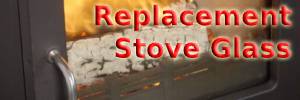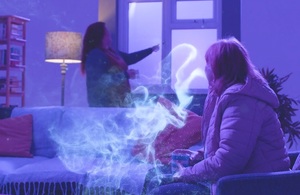A new public information campaign has launched today by the government to highlight how letting fresh air into indoor spaces can reduce the risk of infection from coronavirus by over 70%.
The campaign, which forms part of wider ‘Hands. Face. Space’ guidance, sees the release of a new short film created with scientists and an engineer at Leeds University.
The film illustrates how coronavirus lingers in the air in spaces with no fresh air, increasing the risk of people breathing in infected particles, and how the risk can be reduced significantly by regularly ventilating enclosed areas.
The new film will run across social and digital advertising in England.
Research shows that being in a room with fresh air can reduce your risk of infection from particles by over 70%, as fresh air dilutes the particles.
As we spend more time indoors, experts are recommending that people either:
open windows for short, sharp bursts of 10 to 15 minutes regularly throughout the day
leave windows open a small amount continuously
This is to remove any infected particles lingering in the room.
Additionally, it is advised that any household systems that use outdoor air, including kitchen or bathroom extractor fans, are used correctly and regularly as an additional method to remove infected particles.
Airing indoor spaces is particularly important when:
people have visitors (when permitted) or tradespeople in their home, for example for construction or emergencies
someone from a support bubble is meeting with another household indoors
a care worker is seeing a patient indoors
someone in the household has the virus, as this can help prevent transmission to other household members
Public Health Minister, Jo Churchill said:
We all spend more time inside over the winter, so ventilation is essential.
As the weather gets colder and wetter, letting in fresh air in short burst helps to reduce the risk of coronavirus in our homes. We should all remember: open your windows, and Hands. Face. Space.
Professor Catherine Noakes, from Leeds University who advised on the film, said:
When a room does not have any fresh air, and where people are generating large amounts of aerosol through activities such as singing and loud speech, that is when transmission of coronavirus is most likely. Fresh air must come from outdoors – recirculating air just means the aerosols containing the virus move around the same room rather than being extracted outdoors.
Ventilation units or any household systems that use outdoor air can be just as effective as opening windows or doors as long as they are limiting the recirculation of the same air.
Coronavirus is spread through the air by droplets and smaller particles (known as aerosols) that are exhaled from the nose and mouth of an infected person as they breathe, speak or cough. They behave in a similar way to smoke but are invisible. The majority of virus transmissions happen indoors. Being indoors, with no fresh air, the particles can remain suspended in the air for hours and build up over time.
The longer people spend in the same room as these particles, the more likely they are to become infected.
GP Dr Amir Khan said:
As we approach winter, and inevitably spend more time indoors, fresh air is extremely beneficial. For COVID-19, it is important to ventilate indoor spaces if someone in your home has the virus as this can help prevent transmission to other household members.
You should also let fresh air into your home when you have any visitors and just after they leave in case they are infected. Remember, opening windows alongside washing your hands, covering your face and making space is also essential in reducing your risk of COVID-19.
Ventilation to provide fresh air in enclosed spaces is just as important as the other actions, so remember this as well as ‘Hands, Face, Space’. These are the most effective ways we can all control the spread of the virus. Visit gov.uk/coronavirus for more information.
The public are encouraged to continue to be vigilant of coronavirus symptoms. These include a:
new continuous cough
high temperature
loss or change in your sense of taste or smell
https://vimeo.com/479780249/984a55318f
|
|
||||||
Check Todays Deals on Ebay.co.uk Your Comments:
Custom Search

|
You are in:
UK /
Feltham / London
Find any Town in the UK, or Use UK map Local Google MAP for Feltham Check Todays Deals On Amazon.co.uk Check Todays Deals on Ebay.co.uk 


 Be Seen - Advertise on Qlocal Corporate Sponsors
Southport Piano and Music Academy Washroom Services Maximum Grounds Maintenance Southport Garden Services Ormskirk Garden Services Sanitary Bins Nappy Bins & Waste Disposal Confidential Shredding Services Legionella Risk Testing London Washroom Services Croydon Washroom Services Hounslow Washroom Services Wandsworth Washroom Services Havering Washroom Services Sanitary Bins London Clinical Waste London General Waste London Legionella Testing London Shredding London Tatoo Waste London Preston Bird Control Blackpool Bird Control
UK, Local Online News Community, Forums, Chats, For Sale, Classified, Offers, Vouchers, Events, Motors Sale, Property For Sale Rent, Jobs, Hotels, Taxi, Restaurants, Pubs, Clubs, Pictures, Sports, Charities, Lost Found
feltham,
feltham News,
|
|||||





 Reply With Quote
Reply With Quote